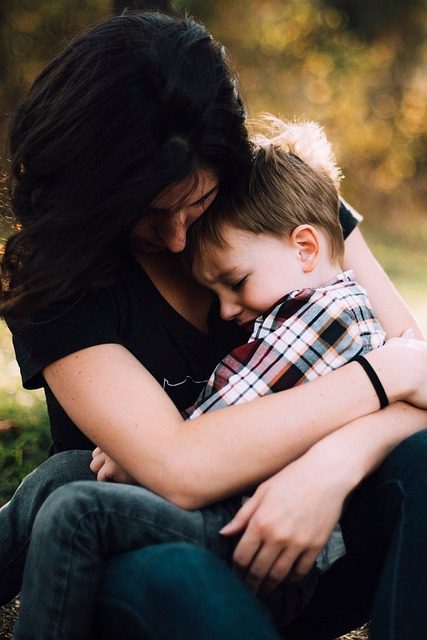A critical aspect of one’s overall health is mental well-being. While adults are commonly more prone to exhibit symptoms of poor mental health, it may not always be the case, as children and teenagers can also experience mental health issues. This is especially since, in most cases, assessing adults with mental health issues can be easier than children because most people may think it’s just their normal behavior.
Among the common mental health issues among children include attention deficit hyperactivity disorder (ADHD), post-traumatic stress, anxiety disorders, such as generalized anxiety and social anxiety, and mood disorders. But as mentioned, it can be difficult to diagnose if your child is experiencing such mental issues, especially if you don’t know the signs to watch out for. And as a concerned parent, you’d want to do nothing but the best to care for your child and ensure their mental well-being.
Table of Contents
What Are The Signs To Look For
There are signs that may indicate your child is experiencing mental health issues. If you observe any of these signs for more than a few weeks, communicate with your child and encourage them to talk to you about what they’re feeling. Moreover, consider seeking professional help, such as consulting a child psychiatrist from mental health service facilities. You can click this link to learn more about your options on how you can help your child.
1. Irritability
One of the common signs that your child may be experiencing mental health issues is frequent occurrences of them showing irritability. Perhaps there may be more than one occasion where they showed fussiness. Young children might always appear irritable and frequently cry, even without apparent reason. More so, pacifying them can be almost impossible once this behavior starts. And on the other hand, teenagers can exhibit irritability in the form of frequent mood swings.
In addition, restlessness can accompany irritability. Your child can’t sit still and engage in eye-to-eye contact in this case. Your child may also have trouble paying attention.
2. Tantrums
Throwing tantrums are considered normal for children and teenagers. It may be their way of expressing frustration and sometimes anger. This could be for not getting what they want or having things go their way, or when they’re seeking attention.
And while they’re common, excessive and impulsive tantrums could be a sign that there may be something wrong. Repeated or worsening instances of them throwing tantrums tend to occur when your child can’t get over these feelings or when they don’t know how to handle or process their emotions.
There are different types of tantrums, and parents can deal with them by understanding the normal from the bad ones. These include:
- Frustration or Fatigue Tantrums: Children who exhibit frustration tantrums may cry and kick when they feel tired, hungry, or distracted by something they’re doing. To prevent fatigue tantrums, you can provide snacks or take your children for a nap. Furthermore, try to calm them down by empathizing and offering help.
- Demanding or Attention-seeking Tantrums: It’s also normal for young children to have demanding or attention-seeking tantrums. Children who have demanding tantrums often want their parents to spend time with them or buy something they want in a toy store. That said, parents don’t necessarily have to always say yes to their children’s demands. But it’s essential that you talk to them and explain your reasons for saying no.
- Avoidance or Refusal Tantrums: Children who show this type don’t want to follow their parents’ requests or commands. They may cry and yell because of not getting what they like or not wanting to do something, like eating meals. So, parents may consider putting them in a safe place to have their tantrums and talk to them when they’re calmer.
- Disruptive and Rage tantrums: This type tends to be worse than the first three types. A child who displays disruptive or rage tantrums may scream, kick, and strike out, losing control. If your child exhibits signs of disruptive or rage behaviors, it’s necessary to seek professional help to prevent harming himself and other people.
3. Bedwetting
Suppose your child started bedwetting again after they’ve been potty trained. It may indicate that they’re going through something or possibly having a mental health struggle.
It’s believed that a traumatic event or disruption in your child’s normal routine or activities can trigger bedwetting. Examples of these events include a death in the family, moving to a new home, or enrolling in a new school. Most children overcome anxiety, and bedwetting becomes less frequent over time.
4. Trouble Sleeping
Does your child experience any difficulties falling asleep at night? Or maybe your child wakes up frequently or experiences intense nightmares. If you observe these sleeping issues, entertain the possibility of post-traumatic stress disorder (PTSD).
PTSD is a mental health problem that adults or children who have had past negative experiences usually suffer from due to their trauma. Children with PTSD may have constant, scary thoughts of bad past events, such as physical abuse, accidents, or natural disasters. In most cases, they may relive the trauma and experience it through flashbacks and nightmares.
5. Anxious Behavior
One of the signs that your son or daughter may be experiencing anxiety disorder is if he or she looks scared or frantic all the time. They could also exhibit anxious behavior such as not wanting to be separated from you, being too clingy, or getting too shy or intimidated by strangers.
In addition, if they tend to avoid social situations, such as attending birthday parties or joining family holidays, note that it can be a sign of social anxiety.
6. Aggressive behavior
A young child or teenager who tends to display aggression, disobedience, or frustration frequently may be exhibiting symptoms of ADHD or any other mental health issue. If your child frequently hits, kicks, bites, or throws frequent tantrums, it’s essential to consult a child psychiatrist as soon as possible.
Children with aggressive behaviors may also throw around objects and engage in extremely violent fights. While it’s not uncommon for many children to display explosive behavior, increasing the frequency and intensity of lashing out isn’t good. Lashing out often signs a more serious type of depression and anxiety.
Aggressive behavior is believed to be associated with uncontrollable moods and emotions. And when their feelings go beyond what they can understand and process, they can exhibit aggressive behavior.
7. Physical Signs
Mental health struggles also have physical health manifestations. Physical pain without a clear medical cause, such as headaches, could indicate a mental problem. Digestive issues, such as nausea, vomiting, diarrhea, constipation, or stomach pain, are common physical symptoms associated with mental health issues, such as stress and depression.
8. Sudden Change In Behavior And Interest
Another tell-tale sign that your child may be experiencing mental health issues is if they start retreating, isolating themselves, and perhaps, even stop communicating with you.
For instance, suppose your child loves watching cartoons. But then you noticed they suddenly stopped enjoying watching TV. Even when you’re encouraging them and joining them in the living room to watch their favorite show, they show little to no interest. Or perhaps, they used to love doing arts and crafts, spending a lot of time perfecting their coloring book or cutting colored papers, but then their hobbies shifted and stopped showing their creative side. Such instances can be a sign that they may not be okay.
Or, on the other hand, maybe you and your child share a special bond, wherein you both talk about your day or share stories about the exciting things that have happened. But perhaps you’ve noticed your conversations slowly lessened, from small talk to not speaking at all. There may be a reason behind this sudden change in such a case.
With that, consider reaching out to them and making them feel they are seen and heard. And more so, create an environment where they will feel safe to talk about their feelings and the things they may be anxious about. Children who may be experiencing mental health issues need all the love and support they can get from you.
9. Change In Appearance
Aside from changes in behavior, interests, or hobbies, there may also be a notable change in their appearance. It can be, for instance, a sudden change in their body. They could lose significant weight or, on the other hand, gain weight. This can be attributed to the change in eating habits and patterns. Under stress, they’re prone to eat less or eat more.
Like teenagers, you may notice a change in their appearance in older kids, such as cutting their hair drastically or going bald. It could also be with the way they dress. Note that one of the common signs of depression or stress among young teenagers is neglecting self-care and hygiene.
10. Changes In Academic Performance
Children who show marked changes in their academic performance might be suffering from mental health issues. For instance, this may include difficulty concentrating, failing subjects, frequently missing classes, or even totally avoiding going to school. This drop in academic performance might not only point toward general mental health struggles but could also indicate specific learning challenges, such as those experienced by children with ADHD. The knowledge of how can ADHD can affect a child’s learning is important, as it can lead to difficulties in maintaining attention, impulsivity in class discussions, and challenges in organizing tasks or following instructions. These symptoms of ADHD directly influence a child’s ability to engage with the curriculum. It can affect the ability to complete assignments and participate in classroom activities effectively. Awareness of ADHD-related learning obstacles can be key to providing the necessary support and accommodations, helping every child reach their full academic potential.
Suppose your child has been an honor student with promising grades but suddenly started failing subjects. This could indicate that they may be having trouble focusing on school. It could be due to depression or anxiety, possibly related to bullying or rivalry.

Help Your Child Overcome Mental Health Issues
Mental health issues among children exist. Sadly, they may feel scared and anxious in most cases as they don’t know how to deal with it. And perhaps, there may be instances wherein they’ll try to conceal it and pretend they’re okay, feeling unsure how to open up.
But as parents, you’d want to help and do anything you can to make them feel better and feel that they’re not alone. With that in mind, here are some things you can do to help your child recover and overcome their symptoms:
1. Know More About The Mental Illness
Suppose your child has already been diagnosed. Or perhaps, you’re unsure and still navigating the signs mentioned above. Regardless of the case, it’s essential that, as parents, you take the time to learn and know more about mental illness.
This allows you to understand your child better and what they may be going through. This can help you communicate with them better and make them feel you’re on their side. Aside from doing your research, a consultation with a professional can also help you understand the possible triggers, coping mechanisms, and the best ways to approach children with mental health problems.
2. Talk To Your Child
You’re probably too busy with household chores and office work. But take time to talk to your child if you notice any signs or potential red flags. Children tend to have difficulty expressing their fear, anxiety, and loneliness.
As parents, consider taking the initiative to know how your children are doing. Spend time asking your child how their day was. Communicate with them, and let them know you aren’t too busy to have a conversation with them. Take this as an opportunity to know what they’ve been up to or if they’re having trouble, say, in school. You won’t know if your child is a victim of bullying or harassment unless you have a conversation with them.
3. Show Your Parental Presence And Support
Young children and teenagers need their parents’ love, appreciation, and support more than anything else. Consider taking time off from work or other commitments once in a while and show up for them. It means being generous with your time to get to know them and their hobbies and interests. That way, they’ll know you support their passion and what they love.
In addition, you can also schedule regular bonding moments as a family. You can have some fun activities to do with your children. For instance, you can have family movie time or a backyard picnic during weekends. If they’re into sports, consider playing with them.
4. Seek Professional Help
Parents who suspect that their children may be suffering from mental health problems can consult a child psychiatrist. Child psychiatrists can help confirm a diagnosis of mental health problems and their appropriate treatments.
One of the most common treatments for children with mental health problems is psychotherapy or behavioral therapy and medication. For young children, it may include playtime and counseling. Depending on the assessment, a child psychiatrist may prescribe antidepressant, stimulant, anti-anxiolytic, or antipsychotic drugs.
Conclusion
Much like adults, children also get to be exposed to stressful situations. And with that, they can also be prone to experience mental health problems. And while it’s true that early assessment and intervention are necessary, it can be challenging to know this if you aren’t sure what signs to look for.
Hopefully, this article has shed some light on what symptoms to watch out for so you can seek professional guidance and help your child manage their mental health issues.
Featured Image by StockSnap from Pixabay




